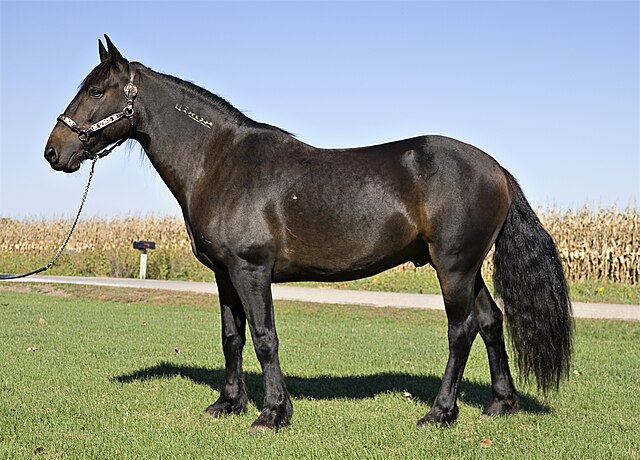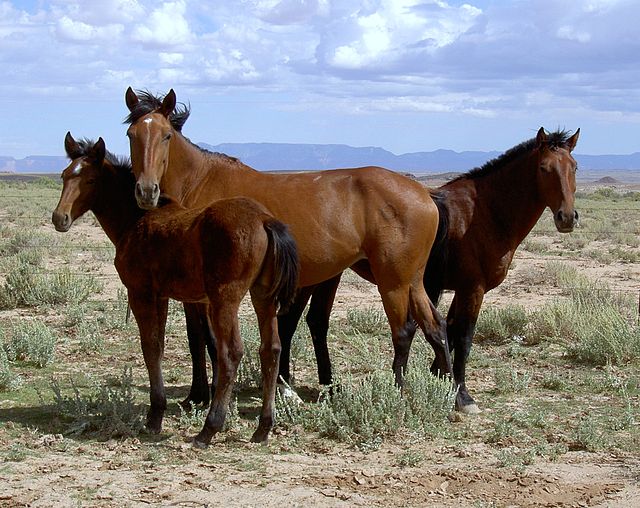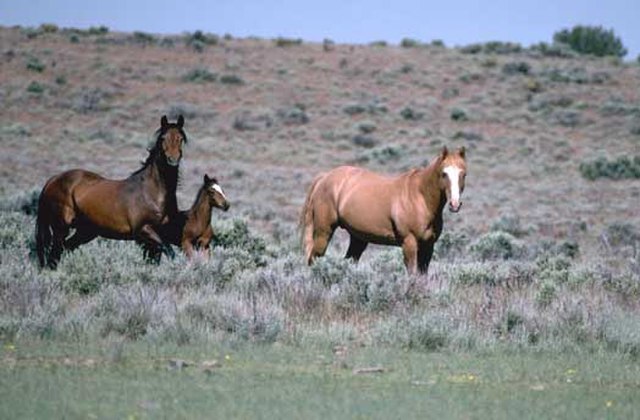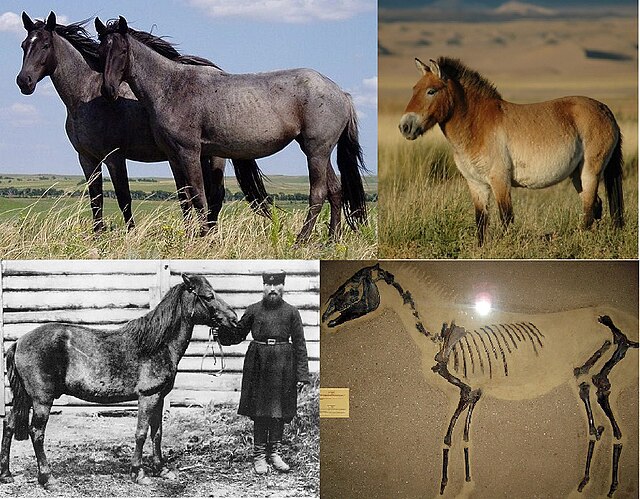The mustang is a free-roaming horse of the Western United States, descended from horses brought to the Americas by the Spanish conquistadors. Mustangs are often referred to as wild horses, but because they are descended from once-domesticated animals, they are actually feral horses. The original mustangs were Colonial Spanish horses, but many other breeds and types of horses contributed to the modern mustang, now resulting in varying phenotypes. Some free-roaming horses are relatively unchanged from the original Spanish stock, most strongly represented in the most isolated populations.
Mustang adopted from the Bureau of Land Management
Free-roaming mustangs near Chinle, Arizona
Mustang mare and foal with stallion in the West Warm Springs HMA (Herd Management Area) in Oregon.
Large herd of free-roaming mustangs galloping through the plains of Utah.
The wild horse is a species of the genus Equus, which includes as subspecies the modern domesticated horse as well as the endangered Przewalski's horse. The European wild horse, also known as the tarpan, that went extinct in the late 19th or early 20th century has previously been treated as the nominate subspecies of wild horse, Equus ferus ferus, but more recent studies have cast doubt on whether tarpans were truly wild or if they actually were feral horses or hybrids.
Wild horse
Equus ferus fossil from 9100 BC found near Odense, at the Zoological Museum in Copenhagen
Probable European wild horse coat colors
Przewalski's horse in Hungary








